2024’s Smart Guide To Making Your Electrician Toolkit The Best
- Field Service Management
- 9 Min Read
Electrical tools are used in almost every electrical application, from wiring installations to maintaining systems and their components. They can perform multiple tasks that an electrician wouldn’t be able to do otherwise. Electrical tools, which come in various styles, are perfect for new installations and replacing or maintaining parts.
As an electrician, you soon learn that your toolkit is your most dependable partner! With the appropriate electrical tools, you will be ready to face any challenge that comes your way.
Keeping in mind the preferences and requirements of technicians, we have put together a guide to buying the best electrician tools for technicians. These new electrician tools in 2024 will keep you up on trends. This electrician tools list will come in handy whether you are a newcomer to this industry or restocking your toolbox.
Here's What We Cover:
-
1. Must-Have Electrician Tools1. Must-Have Electrician Tools
-
2. Best Electrical Hand Tools2. Best Electrical Hand Tools
-
3. Basic Electrical Power Tools3. Basic Electrical Power Tools
-
4. A Toolkit For Anything Electrical4. A Toolkit For Anything Electrical
Must-Have Electrician Tools
Insulated equipment and safety gadgets are the two best means of avoiding electrical shock or injury when working with power tools. Every technician runs the risk of physical injury in their line of work and should take all precautionary steps available to protect themselves. We have an assorted list of safety tools electricians will need while on the job.

Use Our Free Electrical Invoice Template Now!
Make winning quotes in minutes—for any industry and any job.
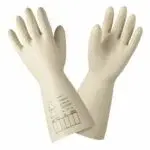
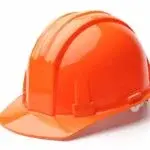
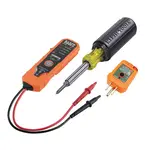
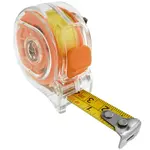
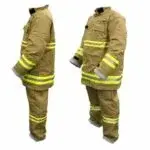
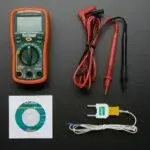
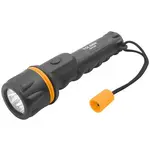
Insulated Gloves
Insulated equipment and safety gadgets are the two best means of avoiding electrical shock or injury when working with power tools. Every technician runs the risk of physical injury in their line of work and should take all precautionary steps available to protect themselves. We have an assorted list of safety tools electricians will need while on the job.
Voltage Detectors
Insulated equipment and safety gadgets are the two best means of avoiding electrical shock or injury when working with power tools. Every technician runs the risk of physical injury in their line of work and should take all precautionary steps available to protect themselves. We have an assorted list of safety tools electricians will need while on the job.
Rescue Rod
Insulated equipment and safety gadgets are the two best means of avoiding electrical shock or injury when working with power tools. Every technician runs the risk of physical injury in their line of work and should take all precautionary steps available to protect themselves. We have an assorted list of safety tools electricians will need while on the job.
Shockproof Helmet
Insulated equipment and safety gadgets are the two best means of avoiding electrical shock or injury when working with power tools. Every technician runs the risk of physical injury in their line of work and should take all precautionary steps available to protect themselves. We have an assorted list of safety tools electricians will need while on the job.
Fire-Resistant Clothing
Insulated equipment and safety gadgets are the two best means of avoiding electrical shock or injury when working with power tools. Every technician runs the risk of physical injury in their line of work and should take all precautionary steps available to protect themselves. We have an assorted list of safety tools electricians will need while on the job.
Dielectric Safety Goggles
Insulated equipment and safety gadgets are the two best means of avoiding electrical shock or injury when working with power tools. Every technician runs the risk of physical injury in their line of work and should take all precautionary steps available to protect themselves. We have an assorted list of safety tools electricians will need while on the job.
Tape Measure
Insulated equipment and safety gadgets are the two best means of avoiding electrical shock or injury when working with power tools. Every technician runs the risk of physical injury in their line of work and should take all precautionary steps available to protect themselves. We have an assorted list of safety tools electricians will need while on the job.
Electrical Tester
Insulated equipment and safety gadgets are the two best means of avoiding electrical shock or injury when working with power tools. Every technician runs the risk of physical injury in their line of work and should take all precautionary steps available to protect themselves. We have an assorted list of safety tools electricians will need while on the job.
Flashlight
Insulated equipment and safety gadgets are the two best means of avoiding electrical shock or injury when working with power tools. Every technician runs the risk of physical injury in their line of work and should take all precautionary steps available to protect themselves. We have an assorted list of safety tools electricians will need while on the job.
Best Electrical Hand Tools
The basic electrician tools technicians need for most of their work are hand tools. Manual dexterity is essential while working with electricity. An electrician’s efficiency is increased by having superior hand, digital apps and tool skills. These electrician tools given below will help improve your efficiency.
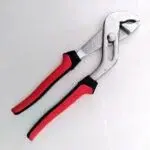
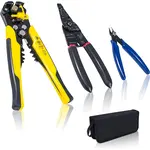
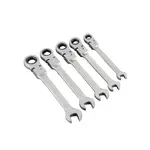
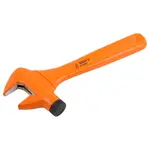
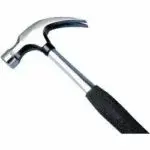
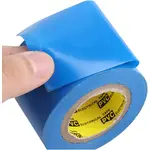
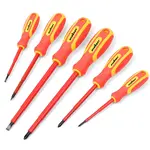
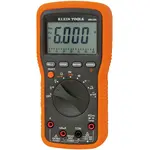
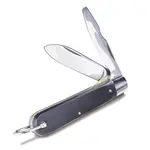
Insulated Pliers
Pliers (insulated) have a tip that can pinch, grab, cut, bend, and so on. It can be changed according to the thickness and size of the object to be pinched by sliding the middle joint.
Pliers come in a variety of shapes and sizes:
Tongue and Groove Plier
Tongue-and-groove pliers grab and turn pipes, fittings, fasteners, and other things with a wide jaw capacity range. They have an adjustable pivot point for sliding their lower jaw up or down a grooved channel to set the distance between the jaws and are also known as multi-grips and groove-joint pliers.
Needle-Nose Plier
Needle-nose pliers help get into narrow spaces where regular pliers would be too cumbersome. The majority of craftspeople use them for intricate projects involving little objects.
Linesman Plier
Electricians use lineman pliers to straighten, cut, grab, twist, push, and pull wire. They’re used for cutting and bending light gauge metal and pulling staples and nails.
Diagonal Cutting Plier
Cutting and skinning wires and removing pins, nails, and other fasteners require diagonal cutting pliers.
Wire Strippers
Wire strippers are compact hand-held tools for removing the insulation from electrical cables. They are used to repair or replace wires. These portable hand-held tools are trendy among electricians and even DIYers.
Wire-strippers come in different types:
Adjustable Wire Stripper
It contains a stop screw that allows the operator to adjust the cut dependent on the wire thickness to be stripped.
Gauged Stripper
This is a popular style since it is simple to use. The blades include perforations that fit wires of various gauges, making stripping easier and faster because no adjustments are required.
Self-Adjusting Stripper
These automatically adjust to wires of different thickness levels, making work much more convenient.
Spanners
A spanner, also known as a wrench, is a tool that provides grip and mechanical advantage when applying torque to spin or stop rotational fasteners such as nuts and bolts.
Types of spanners:
Open-End Spanner
As the name implies, one end is open, allowing you to hold the nuts or bolt’s heads or grip them to tighten or loosen them. The size of an open-end spanner, also known as a single-end spanner, is determined by the distance between their respective jaws.
Ring Spanner
These spanners have spherical rings on one or both ends to drip nuts and bolts to tighten or loosen them. These rings are bent backward with one another.
Projected teeth are integrated into these rings, allowing six-sided nut bolts to be readily grabbed.
Socket Spanner
These spanners are used when e-ring spanners cannot be utilized due to a lack of room. Socket spanners are also used to tighten nut bolts after measuring their torque with a torque wrench.
Hex Keys
A hexagonal socket is used to drive nuts and screws using a small handheld tool. They are easier to operate and less prone to strip because they have six driving points. They come in a variety of sizes, but they all have the same hexagonal-shaped tip.
Multimeter
A digital multimeter is a test instrument that can measure two or more electrical variables, most often voltage (volts), current (amps), and resistance (ohms) (ohms). It is a standard diagnostic tool for technicians in the electrical and electronic industries.
Electricians Knife
Electrical insulation, wires, and other materials can be cut with an electrician’s knife. This pocket knife isn’t only for electricians; it’s a terrific tool for anyone who needs to cut something quickly and easily.
Wire Cutters
Wire cutters are hand tools used for cutting electrical wires to the desired length during installation or repair work. They come in various sizes and designs, including diagonal cutters and lineman’s pliers, and are essential for cleanly cutting wires without causing damage to the conductors.
Zip Ties / Cable Ties
Zip ties, also known as cable ties, are fastening devices used to secure and organize bundles of wires and cables. They are commonly used in electrical work to neatly bundle and secure cables, preventing tangling and ensuring a tidy installation.
Level
Coax Connector
A coax connector is a type of electrical connector used to terminate coaxial cables commonly used for transmitting television signals, internet data, and other high-frequency signals. Electricians use coax connectors to securely connect coaxial cables to devices such as TVs, modems, and routers.
Fish Tape
Fish tape is a flexible, flat wire or tape used by electricians to pull wires through walls, conduits, and other tight spaces during electrical installations or repairs. It helps route wires safely and efficiently without damaging walls or other structures.
Terminal Block
A terminal block is a modular, insulated block used to secure and connect electrical wires or cables. Electricians use terminal blocks to simplify wiring connections, particularly in control panels and distribution boards.
Splicing Connector
A splicing connector, also known as a wire nut or twist-on connector, is used to join or splice two or more electrical wires together securely. Electricians use splicing connectors to create reliable electrical connections without soldering.
Insulated Screwdrivers
The insulation prevents the user from contacting live circuit parts, the box’s grounded walls, or other equipment. Holding the screwdriver’s shaft for balance is safe because it has been protectively covered with a non-conductive substance.
Hammers
An electrician’s best friend is unquestionably the hammer. It’s one of the essential instruments for any repair or mending job. It’s a hand tool with a weighted “head” attached to a long handle that swings to create an impact on a small area of an item.
Wire Crimpers
A crimping tool is a device that holds two pieces of metal together by deforming one or both of them. A crimp is the end product of the tool’s work. Crimping is the process of attaching a connector to the end of a cable.
Wire Gauge
The wire gauge is a measurement of the diameter of the wire. The amount of electric current the wire can safely carry, as well as its electrical resistance and weight, are all determined by this.
Electrical Tape
Electrical tape is pressure-sensitive tape insulating electricity conductors, such as electrical cables. It prevents electrical electricity from mistakenly flowing to neighboring lines, perhaps causing a short or even a fire.
Conduit Bender
A tool used in conjunction with a long lever to bend angles in a conduit into which electric cables are inserted.
Basic Electrical Power Tools
Power tools can offer you better performance, speed, and efficiency in your work. They also are the best tools for electrical work as they are convenient to use and can bring accuracy and precision. Here are some of the best electrical tools that you as an electrician should own:
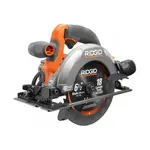
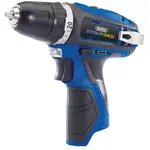

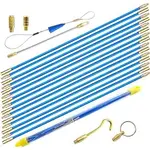

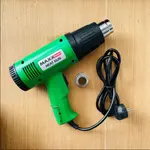
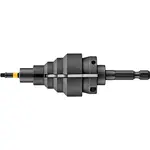
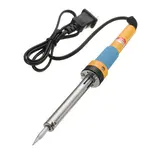

Electric Drill
An electric drill with rechargeable batteries is known as a cordless drill. Drills are typically used to drill circular holes in materials and insert screws and other threaded fasteners.
Soldering Gun
Due to the reduced power of irons, soldering guns are utilized for situations requiring additional heat. This instrument is used for soldering stained glass, light sheet metal, and heavy electrical components together. The soldering gun is significantly more helpful when you need to solder sporadically because it cools much faster.
Circuit Analyzer
The Circuit Analyzer checks for various wiring issues, such as correct wiring, polarity reversal, lack of ground, and arc faults. They look for things like unclean electricity, faulty wiring, faulty grounds, and ground noise, among other things. They should also be included in every electrician’s test toolbox.
Circuit Finder
It has a single purpose: to determine which circuit breaker in the main service panel is responsible for a specific outlet or light fixture to which the tool’s transmitter is connected.
Power Saws
A power saw is a small mechanical tool that can be used for both industrial and home projects. It’s a powerful instrument with tough blades, chains, wire, and teeth, among other things. In large cuts, it is used chiefly for the workpiece.
Impact Drill
Impact drivers are high-torque tools commonly used for screw driving and nut tightening.
Get posts like this in your inbox.
Keep learning how to run a 5-star business with our bi-weekly newsletter.
Cable Cutters
Cable cutters are specialized tools designed for cutting thick cables and wires, such as those used in electrical installations. They provide clean and precise cuts and are essential for cutting through insulation and metal conductors.
Fishing Rods
Fishing rods, also known as wire fishing tools, are flexible rods used to guide and manipulate fish tape through confined spaces during electrical installations. They help electricians navigate obstacles and route wires effectively.
Reaming Bit
A reaming bit is a tool used to enlarge and smooth the openings of electrical conduits or knockout holes in electrical enclosures. It helps electricians ensure proper fitting of cables and wires through conduits and knockout holes.
Heat Gun
It is a multipurpose instrument used for quick-drying adhesives, testing thermostats, thawing locks, speed-drying touch-up paint, and melting soft solder. Electricians commonly use it for heat-shrinking wire tubing.
A Toolkit For Anything Electrical
Starting and managing your own electrical contractors business is not easy. There are multiple aspects to look after, and procuring software for these needs is today’s most common and logical option. Be it for scheduling and dispatching jobs, invoices & quotes, job management, accounting, etc., you will need optimal software for all these tasks. But do you need to manage a multitude of software for these various business needs?
By using ZenElectrical’s Software, you can now handle all your business requirements through one platform.
Explore a better way to grow your business. Book a free demo now!
Get organized, win jobs, and wow customers.
Related Reading
Why Your Field Software Management Software Needs QuickBooks Integration
ZenTrades Why Your Field Service Management Software Needs QuickBooks Integration Read More Request Demo...
Read MoreHow to Manage Electrical Service Agreements like A Pro
ZenTrades How To Manage Electrical Service Agreements Like...
Read MoreThe Best 5 Jobber Alternatives in 2023 with Better Features
ZenTrades The Best 5 Jobber Alternatives In 2023...
Read More


